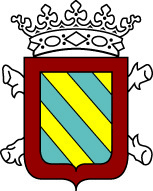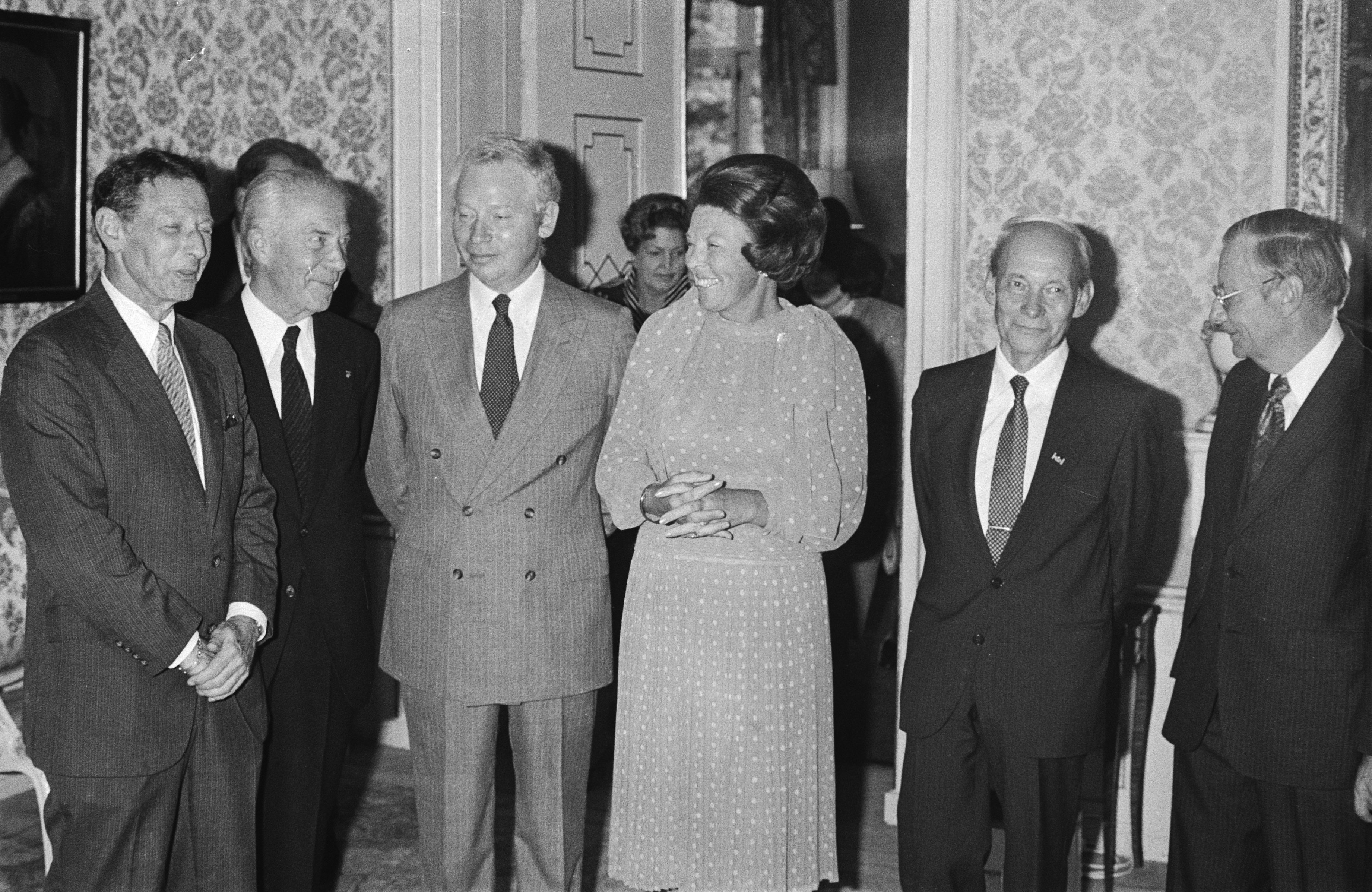|
Francqui Foundation
The Francqui Foundation was founded in 1932 by Emile Francqui and Herbert Hoover with the goal "to further the development of higher education and scientific research in Belgium". The foundation is a private foundation under the legal form of a Belgian ''Fondation of Public Utility''. The Francqui Foundation wants to encourage the prestige of disinterested fundamental research. Francqui Prize In 1933, the Francqui Prize was awarded for the first time. This prize is intended for those Belgians who have made an important contribution to science and thereby to Belgium. Henri Pirenne, Christian de Duve, and Ilya Prigogine are among those who have received this prize. Francqui Chairs A Belgian or non-Belgian scientist can be invited by the Francqui Foundation for a stay at a Belgian university. The scientist should participate in the scientific life and provide a specialized teaching. The proposal for the invitation is made by two or more Belgian universities. See also * Academia Bel ... [...More Info...] [...Related Items...] OR: [Wikipedia] [Google] [Baidu] |
Belgian Academy Council Of Applied Sciences
The Royal Belgian Academy Council of Applied Sciences (BACAS) is a Belgian council, which consists of the Flemish ''Academy Committee for Science and Technology'' (CAWET) and Walloon ''Comité de l'Académie pour les Applications de la Science'' (CAPAS) committees of the Flemish and French Academies of Science in Belgium. BACAS has ten members from the academy and ten from industry. The council studies the impact of technological development on society and provides advice for the Belgian government and leaders of industry. As of 2008 those two committees have become both two full classes of both academies, meaning that the members will become full members, nominated by the King of Belgium, of the academy. For the French-speaking Academy, CAPAS became the Class of Technology and Society, while CAWET became the Class of Technical Sciences. See also * Academia Belgica * Academia Europaea * European Council of Applied Sciences and Engineering (Euro-CASE) * Flemish Council for Science ... [...More Info...] [...Related Items...] OR: [Wikipedia] [Google] [Baidu] |
Scientific Organisations Based In Belgium
Science is a systematic endeavor that builds and organizes knowledge in the form of testable explanations and predictions about the universe. Science may be as old as the human species, and some of the earliest archeological evidence for scientific reasoning is tens of thousands of years old. The earliest written records in the history of science come from Ancient Egypt and Mesopotamia in around 3000 to 1200 BCE. Their contributions to mathematics, astronomy, and medicine entered and shaped Greek natural philosophy of classical antiquity, whereby formal attempts were made to provide explanations of events in the physical world based on natural causes. After the fall of the Western Roman Empire, knowledge of Greek conceptions of the world deteriorated in Western Europe during the early centuries (400 to 1000 CE) of the Middle Ages, but was preserved in the Muslim world during the Islamic Golden Age and later by the efforts of Byzantine Greek scholars who brought Greek man ... [...More Info...] [...Related Items...] OR: [Wikipedia] [Google] [Baidu] |
University Foundation
The Belgian University Foundation (French: ''Fondation Universitaire''; Dutch: ''Universitaire Stichting'') was founded in 1920. The goal of the Foundation, as was put forward by Emile Francqui, is to promote scientific activity at Belgian universities. Goals # To provide grants and study loans to students from less privileged families. # To help university research centres and laboratories to attract young researchers. # To stimulate contacts and collaboration between the different Belgian research institutions by supporting scientific publications. # To organize a ''Club Universitaire'' as a meeting place for Belgian and foreign academics. History The money for the foundation came from the remaining funds from the Commission for Relief in Belgium (CRB) and the National Committee for Help and Food. The help to the Belgian people during World War I had been organized by Herbert Hoover and Emile Francqui On 28 August 1919, Herbert Hoover proposed to Emile Francqui, President of ... [...More Info...] [...Related Items...] OR: [Wikipedia] [Google] [Baidu] |
The Royal Academies For Science And The Arts Of Belgium
The Royal Academies for Science and the Arts of Belgium (RASAB) is a non-governmental association which promotes and organises science and the arts in Belgium by coordinating the national and international activities of its constituent academies such as the National Scientific Committees and the representation of Belgium in international scientific organisations. RASAB was formed as a non-profit organization (Association without lucrative purpose) in 2001 by the Dutch-speaking academy KVAB ( Koninklijke Vlaamse Academie van België voor Wetenschappen en Kunsten i.e. ''Royal Flemish Academy of Belgium for Science and the Arts'') and by the French-speaking academy ARB ( i.e. ''The Royal Academy of Science, Letters and Fine Arts of Belgium''). The association is headquartered in the buildings of the former Royal Stables at the Academy Palace, Hertogsstraat 1 Rue Ducale B-1000 Brussels. History Academies RASAB was founded in 2001 by the two Belgian academies which are connecte ... [...More Info...] [...Related Items...] OR: [Wikipedia] [Google] [Baidu] |
Science And Technology In Belgium
Science and technology in Belgium is well developed with the presence of several universities and research institutes. As Belgium is a federal state, science is organized at several levels. At the national level, there is the Belgian Federal Science Policy Office (BELSPO) and each of the three regions, Brussels-Capital Region, Flanders and Wallonia have their own regional science and technology development: * Science and technology in Brussels * Science and technology in Flanders * Science and technology in Wallonia Belgium is known for its science and technology. it has also improved its weaponry See also * Belgian Federal Science Policy Office (BELSPO) * Royal Academies for Science and the Arts of Belgium * List of Belgian Nobel laureates * Interuniversity Microelectronics Centre * Economy of Belgium * Education in Belgium * Open access in Belgium In Belgium, open access to scholarly communication accelerated after 2007 when the University of Liège adopted its first open-acc ... [...More Info...] [...Related Items...] OR: [Wikipedia] [Google] [Baidu] |
National Fund For Scientific Research
The National Fund for Scientific Research (NFSR) (Dutch: ''Nationaal Fonds voor Wetenschappelijk Onderzoek'' (NFWO), French: ''Fonds National de la Recherche Scientifique'' (FNRS)) was once a government institution in Belgium for supporting scientific research until it was split into two separate organizations: * the Dutch-speaking '' Fonds Wetenschappelijk Onderzoek – Vlaanderen'' (FWO) (Research Foundation – Flanders) for the Flemish Community and * the French-speaking ''Fonds de la Recherche Scientifique – FNRS'' (F.R.S.–FNRS) for the French Community. The task of the FWO and F.R.S.–FNRS is to stimulate the development of new knowledge in all scientific disciplines. The means to achieve this, is to finance excellent scientists and research projects after an inter-University competition and with an evaluation by foreign experts. The criterion for support is the scientific quality of the scientist and the research proposal, irrespective of scientific discipline. Both in ... [...More Info...] [...Related Items...] OR: [Wikipedia] [Google] [Baidu] |
Belgian American Educational Foundation
The Belgian American Educational Foundation (BAEF) is an educational charity. It supports the exchange of university students, scientists and scholars between the United States and Belgium. The foundation fosters the higher education of deserving Belgians and Americans through its exchange-fellowship program. Since 1977, Dr. Emile Boulpaep is the president of the BAEF. History During World War I, from October 1914, Herbert Hoover organized the Committee for Relief in Belgium (USA) and the ''Commission for Relief in Belgium'' (Belgium). After the war, the University Foundation, and on 9 January 1920, the B.A.E.F., were founded with the budget remaining in the hands of the commission after five years of relief work. The ''Belgian American Educational Foundation'' became the heir of the Commission for Relief in Belgium. After World War I, the BAEF invested in land and buildings for the Université libre de Bruxelles (Solbosch campus) and also for rebuilding the library of the Catho ... [...More Info...] [...Related Items...] OR: [Wikipedia] [Google] [Baidu] |
Academia Belgica
The Academia Belgica is an academic organization. The goal of the Academy is to promote the cultural, scientific and artistic cooperation between Italy and Belgium. The organization was founded in 1939 when the Belgian princess Marie-José married the Italian crown prince Umberto. The Academy is also the seat of the Belgian Historical Institute in Rome and of the foundation princess Marie-José, which supports historical research. In 1947, Franz Cumont donated his library to the Academia Belgica. Pierre Bautier and Henri Pirenne, also donated collections to the academy. Directors of the Academy * Jules Vannerus (1939–1940) * Fernand De Visscher (1945–1949) * Fernand Vercauteren (1949–1954) * William Lameere (1954–1959) * Charles Verlinden (1959–1977) * Jan Albert Van Houtte (1977–1983) * Louis Godart (1983–1988) * Jozef Mertens (1988–1993) * Jacqueline Hamesse (1993–2003) * Walter Geerts (2003–2012) * Wouter Bracke (2012-2018) * ... [...More Info...] [...Related Items...] OR: [Wikipedia] [Google] [Baidu] |
Emile Francqui
Emil or Emile may refer to: Literature *''Emile, or On Education'' (1762), a treatise on education by Jean-Jacques Rousseau * ''Émile'' (novel) (1827), an autobiographical novel based on Émile de Girardin's early life *''Emil and the Detectives'' (1929), a children's novel *"Emil", nickname of the Kurt Maschler Award for integrated text and illustration (1982–1999) *''Emil i Lönneberga'', a series of children's novels by Astrid Lindgren Military *Emil (tank), a Swedish tank developed in the 1950s * Sturer Emil, a German tank destroyer People *Emil (given name), including a list of people with the given name ''Emil'' or ''Emile'' *Aquila Emil (died 2011), Papua New Guinean rugby league footballer Other * ''Emile'' (film), a Canadian film made in 2003 by Carl Bessai *Emil (river), in China and Kazakhstan See also * * *Aemilius (other) *Emilio (other) *Emílio (other) *Emilios (other) Emilios, or Aimilios, (Greek: Αιμίλιος) is a ... [...More Info...] [...Related Items...] OR: [Wikipedia] [Google] [Baidu] |
Ilya Prigogine
Viscount Ilya Romanovich Prigogine (; russian: Илья́ Рома́нович Приго́жин; 28 May 2003) was a physical chemist and Nobel laureate noted for his work on dissipative structures, complex systems, and irreversibility. Biography Prigogine was born in Moscow a few months before the Russian Revolution of 1917, into a Jewish family. His father, Ruvim Abramovich Prigogine, was a chemical engineer at the Imperial Moscow Technical School; his mother, Yulia Vikhman, was a pianist. Because the family was critical of the new Soviet system, they left Russia in 1921. They first went to Germany and in 1929, to Belgium, where Prigogine received Belgian nationality in 1949. His brother Alexandre (1913–1991) became an ornithologist. Prigogine studied chemistry at the Free University of Brussels, where in 1950, he became professor. In 1959, he was appointed director of the International Solvay Institute in Brussels, Belgium. In that year, he also started teaching at the U ... [...More Info...] [...Related Items...] OR: [Wikipedia] [Google] [Baidu] |
Christian De Duve
Christian René Marie Joseph, Viscount de Duve (2 October 1917 – 4 May 2013) was a Nobel Prize-winning Belgian cytologist and biochemist. He made serendipitous discoveries of two cell organelles, peroxisome and lysosome, for which he shared the Nobel Prize in Physiology or Medicine in 1974 with Albert Claude and George E. Palade ("for their discoveries concerning the structural and functional organization of the cell"). In addition to peroxisome and lysosome, he invented scientific names such as autophagy, endocytosis, and exocytosis in a single occasion. The son of Belgian refugees during the First World War, de Duve was born in Thames Ditton, Surrey, England. His family returned to Belgium in 1920. He was educated by the Jesuits at Our Lady College, Antwerp, and studied medicine at the Catholic University of Leuven. Upon earning his MD in 1941, he joined research in chemistry, working on insulin and its role in diabetes mellitus. His thesis earned him the highest universi ... [...More Info...] [...Related Items...] OR: [Wikipedia] [Google] [Baidu] |


